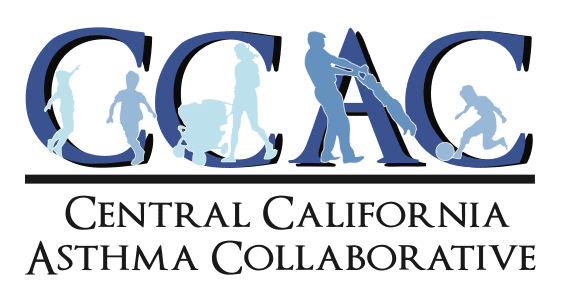
In 2011, the Fresno/Madera Asthma Coalition (FMAC) received a grant from the Wesley Foundation to develop and implement an asthma education program for children in low-income communities. As a result, the FMAC decided to incorporate as a 501.c(3) and was renamed the Central California Asthma Collaborative (CCAC). This is how CCAC was born.The newly formed non-profit’s mission was to increase capacity for asthma-related education and advocacy in Fresno and Madera counties, as well as organizing and supporting other county asthma coalitions across the San Joaquin Valley. The following year CCAC began implementing the Central Valley Asthma Project (CVAP), a multi-component intervention based on:
- Best practices developed by existing programs in Seattle, Boston and Baltimore,
- Recommendations published in the Coordinated Federal Action Plan to Reduce Racial and Ethnic Asthma Disparities from the President’s Task Force on Environmental Health Risks and Safety Risks to Children, and
- Findings from the US Department of Health and Human Services’ Community Preventative Services Task Force on home-based, multi-trigger, multi-component environmental interventions to control asthma.
In 2013, the California Endowment funded a social impact bond company in Boston called Social Finance to explore the potential of utilizing social impact bonds to fund community-based asthma management programs, like CVAP. Social Finance contracted with CCAC to work with local managed care health plans and safety net providers to expand CCAC’s capacity to implement their home-based, multi-component asthma intervention (renamed the Asthma Impact Model or AIM). Through this project, CCAC was able to demonstrate the efficacy of the AIM program in reducing asthma symptoms, decreasing emergency care utilization and improving quality of life for low-income children with asthma.
With funding from private foundations (e.g. Kaiser Community Benefits Program), managed care organizations (e.g. Health Plan of San Joaquin) and public grants (e.g. California Air Resources Board Supplemental Environmental Projects), the AIM program has since been able to provide in-home asthma services to low-income families in Kern, Kings, Merced, Stanislaus and San Joaquin Counties. With the recent allocation of $15 million by the state of California to fund the Asthma Mitigation Project, CCAC hopes to soon make available its’ AIM program to all communities across the San Joaquin Valley.

